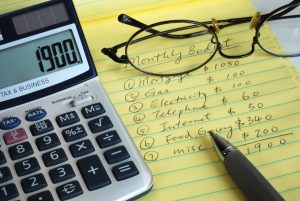With so much economic insecurity in today’s world, it’s important to save as much money as possible to reduce the financial risk of that uncertainty. If you have a family, it’s even more important to do everything possible to ensure your family’s financial future is secure.
But perhaps you’re unconvinced and happy just plodding along like many Americans with less than $200 in your savings account. Then one day you blow a tire… BOOM $100 gone. Ok, you survived that hit to your wallet. But what if you need 4 new tires? Now it’s an emergency since that’s $400 and you only have $200. What about a new water heater… they only last 6 – 12 years and cost $500+ (even if you install it yourself).
 If you have an emergency fund these are just inconveniences, if you don’t they are emergencies. But you say, you only take public transportation and you rent your home? What about a kidney stone? Ahh… you have health insurance… how much is your deductible and/or Co-Pay?
If you have an emergency fund these are just inconveniences, if you don’t they are emergencies. But you say, you only take public transportation and you rent your home? What about a kidney stone? Ahh… you have health insurance… how much is your deductible and/or Co-Pay?
What about a broken tooth? Most health insurance doesn’t cover dental. What about emergency travel, a funeral, a bigger than expected tax bill, a sick pet or heaven forbid you lose your job? There is no guarantee that the surprises in life will be covered by your meager savings. Experts say you should have six to twelve months living expenses to be truly safe.
To help address some of these unexpected expenses this credit union in Logan, Utah has begun offering a variety of different insurance plans like “Debt Protection insurance” which “can help relieve financial pressure in the event of death, disability, or involuntary unemployment.” They also offer “Automobile Loss Protection” which covers the gap between your insurance company settlement and the balance due on your auto loan. And even “Mechanical Breakdown Protection”.
But all of these come at a price. If you are paying for all of this extra insurance, why not just put the money in your “Rainy Day Fund” instead. After all what happens if you have all this insurance and something not covered happens? Wouldn’t it be better to be ‘self-insured” through your own fund? Plus, that way if nothing bad happens you still have the money. 🙂
So, if you’re ready to start a rainy day fund, here are some of the best ways to do so.
Start with a Budget
If you want to know where your money is going, create a budget. If you’ve got a bucket with a leak in it, before you can fix the leak you must first locate the leak. By creating a budget, you’ll not only know where your money is going, but also be able to figure out ways to save money. For example, if you discover you’re eating out several times per week, try cutting back to once or twice a week. When you do, you’ll be saving hundreds of dollars per year.
Pay Yourself First
If you want to keep as much money as possible for your rainy day fund, start by always paying yourself first each payday. Professionals, know that having automatic withdrawal makes saving easier. In doing so, every payday you’ll be guaranteed to have some money tucked away in the bank before you ever get the chance to spend it on something frivolous.
Live Within Your Means
By having a good understanding of your cash flow, you’ll be able to live within your means each and every day. When you do this, you can make sure any debt you may have will get paid off in a timely manner, letting you put this money into your rainy day fund. This is a particularly good strategy for those families who have credit card debt, since it can help them apply more of their money to paying down the debt. By paying more than the minimum payment each month, you’ll soon be free from the chains of debt and find your rainy day fund increasing faster each month.
Turn Off the Lights
While many people focus most of their budgeting energy on eliminating credit card debt and saving money at the grocery store, very few choose to pay attention to their utility bills. Electric bills and water bills are considered great ways to save money, and offer many easy things to do that can save a few dollars monthly. For example, turning off lights in rooms that aren’t being used can result in savings, as can using less water when washing clothes or your car. You can also reduce the temperature in your water heater, thus saving on heat loss. By making only a few subtle changes throughout the year, you may be surprised how much money that was being wasted on utility bills can instead be put to good use in your rainy day fund.


